Naval drones: the Armed Forces of Ukraine are introducing real sanctions against Russia
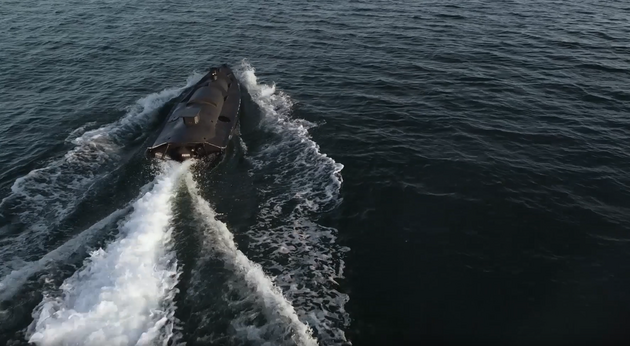
On August 4, Ukraine announced a military threat to shipping in the waters of the Russian ports of Anapa, Novorossiysk, Gelendzhik, Tuapse, Sochi and Taman on the Black Sea. The relevant notification of the "State Hydrography" of the State Service of Maritime and River Transport of Ukraine was made in strict accordance with international maritime law, in particular the rules of the International Maritime Organization and standard procedures. On August 5, a naval drone struck a Russian tanker of the "river-sea" class that was transporting products near the Kerch Strait. The SIG tanker was involved in the supply of diesel and jet fuel to Syria for the Russian troops stationed there, and also transported fuel to the occupied Crimea for the needs of the occupation contingent. Earlier, on July 21, the Ministry of Defense of Ukraine warned that all vessels bound for the ports of the Russian Federation or occupied Ukrainian ports may be considered as carrying military cargo and are legitimate military targets. So, the Ukrainian side implemented the threat as an appropriate reaction to the actions of the Russian Federation to damage the port infrastructure of Ukraine after Moscow's withdrawal from the Black Sea Grain Agreement under the auspices of the United Nations (UN).
However, the problems of the war at sea are not limited to the narrow framework of events after the termination of the grain agreement. Let's try to look deeper.
Sanctions
Winning reports in a number of Western media about the effectiveness of sanctions against the Russian Federation based on the results of the first half of 2023 are based on the figure of a reduction in export revenue for sold energy resources, primarily for oil and oil products. This is 46%, but a significant share of this reduction is caused by the decrease in oil prices on world markets. However, the main mistake is that the last year 2022 is taken as a basis for comparison. The reduction of these, record for the entire existence of the Russian Federation, export oil and gas revenues by the above-mentioned figure will not lead to a fatal reduction of the Kremlin's war budget.
In an article for ZN.UA, written with colleagues at the beginning of the year, we noted that the European Union (EU) and G7 sanctions against Russia are aimed at paralyzing its ability to wage war against Ukraine. Economic restrictions have weakened the capabilities of the Russian regime, but overall, the actions of the West have not stopped Russian aggression. This happened because, in parallel, the United States of America made sanctions that are quite limited in their sphere of influence. The restriction was to "keep Russian oil on the market to stem the rise in global prices and not harm the global economy as President Joe Biden's administration wants oil prices to remain stable ahead of next year's presidential election." This is stated in the recent revelations of one of the Western business publications.
Therefore, Russia acquired the ability to receive and spend sufficient funds for waging war. Thus, this means that Western sanctions are, in diplomatic terms, limitedly effective, and frankly ineffective, because the perpetuum mobile of war continues to receive its fuel for further warfare in the form of oil export revenues and not only from this source.
Money
Western analytical and intelligence organizations, citing in the past months the estimated data of the military expenditures of the Russian Federation for the current year, stated that the true expenditures of Russia for the war remain uncertain due to the "lack of transparency", in particular, due to the use of secret articles of the budget. In my opinion, it would be strange if these expenses were declared in Russia. Soviet and Russian traditions do not foresee transparency in this matter, especially during wartime. Probably, not taking into account "opaque costs", SIPRI and British intelligence estimates of Russia's real military spending were at the level of 2022 - $85.8 billion. Of course, this does not correspond to the real state of affairs and raises doubts about the adequacy of the analysts' ideas about modern Russia.
Based on various data and estimates of the dynamics of the spending of funds by the Russian Federation "for war" according to the results of the first quarter of 2023, its annual military expenses were estimated by the "Strategy XXI" Center at a minimum of 156 billion dollars. The data that appeared as a result of the first half of the year – 5.59 trillion rubles, or more than 72 billion dollars at the weighted average exchange rate – make it possible to slightly adjust this amount – 145 billion dollars of expenses in annual terms. The difference is small for such a scale of numbers. If we take the military expenses of the Russian Federation in 2023 in monthly terms, then, based on the above, they can be estimated at an average of 12.1 billion dollars. Ukraine's military expenditures (for the entire defense and security sector), taking into account the additional allocations allocated by the Verkhovna Rada of Ukraine, can be estimated at almost 46 billion dollars annually. This means monthly expenses on average of 3.8 billion dollars, which is 3.2 times less than the aggressor's expenses.
The imbalance is obvious and it is a dangerous imbalance. It does not decrease even by half, taking into account Western aid. The Washington Post figure of $43.1 billion in military aid provided by the United States of America does not take into account the fact that the actual amount of weapons and military equipment provided is $17.54 billion. In addition, most of it, or $20.58 billion, is deferred aid that did not materialize in the form of supplies. At least for the time being.
Taking into account the reduction of its export revenues, the growth of war expenses, the downward dynamics of the ruble, the Kremlin focused not only on defeating the Armed Forces of Ukraine in terms of military operations, but also on the maximum weakening of Ukraine through the destruction of its military and civilian infrastructure. In addition, it is important to note that the Kremlin wants to do this with an emphasis on the critical energy infrastructure and logistics of the main export, which the agricultural sector has become after the loss of the basic enterprises of the metallurgical sector in the east of the country. It is logical that an exhausted enemy can be defeated faster and with less costs.
The results of the Vilnius NATO summit cheered the Kremlin leadership, because they saw that the fear of war with Russia in the most powerful military alliance, as well as in its most powerful member – the United States of America, is kept at a level that allows Russia to pay attention to it only verbally. That is, by regularly probing their reaction either with an American drone destroyed over the Black Sea, with cruise missiles over Romania and Poland, or with Belarusian helicopters over Poland.
Grain and ammonia
The weakness of the West and the indecisiveness of the United States of America in confronting authoritarianism is manifested not only in the inability to stop Russian aggression in Europe, but also in the rapid loss of positions in Africa. All this encourages Russia to act even more aggressively, counting on the support of China and the support of the Global South. The latter cynically seeks to use both for its own purposes.
Force and violence can only be countered by force and violent action. When the West draws the attention of our enemy to the political leaders in Moscow at the Charter of the United Nations, the Final Act of the Conference of the States Parties to the Treaty on Conventional Armed Forces in Europe and the International Criminal Court arrest warrants for Vladimir Putin and Maria Lvova-Belova, it does not have the proper effect on the Kremlin. It was not by chance that Russia decided not to continue participating in the grain agreement. It specifically decided not to take part in it any more, predicting only a verbal reaction from the West, as in the case of blowing up the Kakhovka HPP dam.
At the beginning of April, the Russian Federation put forward conditions to the United Nations (UN): the cancellation of sanctions on Russian agricultural exports (this meant the cancellation of their actions against the Russian Agricultural Bank, its connection to SWIFT). In addition, the Russian Federation also demanded permission for Russian vessels to enter the United Nations (UN) ports, resumption of ammonia exports through the Tolyatti-Odesa pipeline and some other pipelines. The normalization of the work of the Russian Agricultural Bank, which is in the sphere of influence of the Patrushev family, along with the resumption of ammonia exports and other "pleasant advantages", would in fact become not only a window of opportunity in terms of another deficiency in sanctions, but would also contribute to the growth of the Patrushev family's influence in the Kremlin and war to the very "victorious end". These "proposals" of the Russian Federation were notoriously unacceptable, as they destroyed the already sanctioned regime of the West, which has a lot of various flaws. By the way, Western countries did not impose any sanctions on Russian exports of grain and fertilizers. Thus, Russia simply manipulated in order to create an artificial pretext for terminating the grain agreement and create suitable conditions for actions to damage the agricultural and export infrastructure of Ukraine.
It is clear that Russia wants to increase its influence on the global agricultural market, both in the fertilizer segment and in the food segment, in order to then influence it through the manipulation of supply volumes (as it did in the European gas market in 2021-2022). In addition, the Russian Federation also seeks to strike Ukraine strategically, limiting its ability to receive income and finance defense expenditures. That is, to increase one's income, and to decrease the enemy's. The Russian Federation wants to bypass Western sanctions and make the Global South its ally by luring it to its side.
The only thing that Russia does not have is the ability to export large volumes of ammonia without the Ukrainian route (Tolyatti-Odesa and the terminal at the port of Pivdennyi), which has existed since Soviet times. It is currently building its route with a terminal in the port of Taman, but it will not become a full-fledged substitute for Tolyatti-Odesa. In addition, the port of Taman is in the zone of active military operations and shelling of the Armed Forces of Ukraine. We have already struck this port, after which the shipment of liquefied petroleum gas was stopped there.
A more far-reaching "ammonia in exchange for gunpowder and explosives" plan may be behind efforts to resume ammonia exports through Tolyatti-Odesa. In Russia, the existing production capacity for the production of artillery powder and explosives cannot meet the growing needs for the production of weapons. At the same time, a number of poor countries in the Middle East and Africa are producers of gunpowder and explosives and at the same time need mineral fertilizers for agriculture. It is likely that a scheme could have been worked out, according to which certain "poor countries" would receive Russian fertilizers, and in exchange for them, explosive products would be supplied to Russia. For example, such a country can be India, which is a large importer of ammonia. By the way, only about 70% of ammonia is used for the production of fertilizers, and the rest is used for the production of explosives, synthetic fibers, and plastic.
Drones
Naval drones became a surprise of the Russian-Ukrainian war in 2022. On November 18, Ukrainian drones attacked Novorossiysk. Although no significant damage was caused, the attack demonstrated the real range of the new weapon. The Black Sea should not be a "Russian lake" – this was a direct message to the Kremlin and a hint to our hybrid friends that effective sanctions against Russian oil exports are needed. However, they did not get the hint. The rapid evolution of Ukrainian naval unmanned systems and the increase in their output allows for the formation of an unmanned mosquito strike fleet for operations in the Black Sea over time.
The range and capabilities of attack unmanned aerial vehicles (UAVs) have increased. The air attacks on the residential complex "Moscow-City" and the temporary closure of Vnukovo International Airport due to the threat to air traffic in its zone are indicators of Ukraine's growing capabilities. Technological progress opens up new opportunities to curb the aggressor by assigning him strikes on strategic infrastructure, namely seaports and airfields (not only civilian airports around Moscow, but also a number of air bases, namely Kubinka, Chkalovsky and others). That is, to respond to it by copying its own military actions, to take revenge on it for causing damage to our energy and transport infrastructure.
Against the background of the ineffectiveness of the existing Western sanctions and the reluctance of a number of weak-minded leaders of individual partner countries to deepen and expand them and the pending issue of the transfer of the frozen financial assets of the aggressor to Ukraine, there is a need for additional actions to defeat the enemy. This is necessary in order to destroy its logistical chains, paralyze its activity, and most importantly, reduce its income to the war budget.
Analysts in Europe and the United States of America note that freight rates will rise as the risks of transporting anything across the Black Sea have increased. According to Kpler Ltd. analysts, the cost of delivering Russian oil from Novorossiysk to the west coast of India may increase by 50%.
The reluctance of NATO and certain leading member countries (the United States of America, Turkey) to protect the grain corridor in the Black Sea by providing it with air and sea cover – not for the sake of Ukraine, but for the sake of a humanitarian mission to ensure food security in Africa – essentially encouraged Russia to attack the port infrastructure of Ukraine. And the statements of some high-ranking officials of the United States of America simply encouraged it. National Security Adviser to the President of the United States of America Jake Sullivan, scaring the Kremlin with the consequences of withdrawing from the grain agreement, noted: "...in the future, this will lead to huge diplomatic losses for Russia." Diplomatic, that's right, only diplomatic losses. I suppose political leaders in the Kremlin laughed at this statement for a long time.
In addition, the opinion about the dissatisfaction of the United States of America with the actions of Ukraine in the Black Sea is spreading, as this creates instability in the oil market. Perhaps behind this discontent is the traditional lobbying pressure of Chevron and ExxonMobil on the United States of America administration to maintain the existing status quo of transporting its oil from Kazakhstan fields through Russia and the Black Sea. More than once, Moscow has demonstrated its readiness to block the pipeline of the Caspian Pipeline Consortium, so that these largest American companies can pressure the White House on both the revision of sanctions and influence on Ukraine. It is not by chance that the Russian Federation "suddenly" expanded the borders of the Novorossiysk seaport last year, including the Yuzhnaya Ozereevka district with the terminal of the Caspian Pipeline Consortium (CPC), located 18 km from the city. After all, the traffic of American and Kazakh oil should be under the tightest possible Russian control.
"The White House will not accept anything that risks reducing the supply of Russian oil to the market," says the former Central Intelligence Agency (CIA) analyst Helima Croft. Unfortunately, the Central Intelligence Agency (CIA) analysts see what's on the surface, but they don't see what's underneath. The destabilization of the oil market lies in Russia's intentions, which are aimed at reducing the volume of foreign oil on the market and raising prices. Limiting the supply of oil from Kazakhstan through the terminal of the Caspian Pipeline Consortium (CPC) under one or another pretext is ideal for this.
By the way, in July, Western media wrote about the intentions of the Russian Federation to influence the global oil market. For some reason, former the Central Intelligence Agency (CIA) analysts did not notice this. The Kremlin has long been engaged in the preparation of a large-scale special operation to unwind the price spiral by analogy with what Gazprom successfully did on the European gas market. This, by design, should negatively affect the position of the Biden team in the 2024 presidential elections and contribute to the appearance of an "inside man" in the White House, namely Trump.
It should be noted that American companies have alternative opportunities to transport part of their oil not through the Caspian Pipeline Consortium (CPC), but through the Caspian Sea and the Baku-Supsa (Georgia) oil pipeline or the not sufficiently loaded Baku-Tbilisi-Ceyhan oil pipeline directly to the Mediterranean Sea bypassing the Black Sea. But they prefer not to change anything at all, although there are great chances that soon the real threat of their displacement from Kazakhstan by the Russians and Chinese will begin to exist. However, this is a completely different story.
In the words of McFaul-Zaluzhnyi...
Therefore, Western economic sanctions do not have the proper effect, political and diplomatic pressure on Moscow has not yielded any results for a long time, so Kyiv must act according to the most rigid scenario of transferring hostilities to enemy territory and maritime spaces. And these actions will not be taken in order for Putin to be forced to renew the grain agreement. This is a narrow-minded vision of obtaining a situational tactical victory while maintaining and increasing the strategic threat of further damage and destruction by the enemy of our industrial assets and logistics chains.
Someone obviously harbors the illusion that Russia will stop shelling Ukraine's port infrastructure if we stop attacking Black Sea Fleet ships and vessels. Perhaps this will happen. But with Russian missile strikes deep into Ukrainian territory and the proper functioning of the Russian "Defense Logistics" route through the Black Sea straits for the supply of ammunition, such an approach is short-sighted and thoughtless.
Hostile troops must be destroyed wherever we can get them. Especially when our hybrid friends are terrified. The recipe for politicians who are afraid of the Russian Federation and taking decisive action was written long ago by the great predecessor of the current democratic president of the United States of America, Franklin Delano Roosevelt. One of the main messages of his inaugural address on March 4, 1933: "The only thing we have to fear is fear itself."
Speaking on August 3, former ambassador of the United States of America to Russia and now co-chair of the International Working Group on Russia Sanctions Michael McFaul bluntly noted that there are now mistakes in the policies of the current administration. He cited in particular the slow decisions regarding the supply of weapons to Ukraine, such as long-range missiles and F-16 fighter jets. In addition, he emphasized: "The values of the Ukrainian people are a huge advantage, which the West should support more, providing more and better weapons faster, as well as introducing more sophisticated sanctions. ...this is the way to speed up the victory, because only the victory of Ukraine will end the war. Negotiations will only prolong the war...". McFaul rightly observed that "the fear of escalation in the Biden administration is the wrong approach."
Finally, it is worth recalling the recipe of the Commander-in-Chief of the Armed Forces of Ukraine, General Valery Zaluzhnyi – the enemy must be killed on his territory as well. Naval drones and unmanned aerial vehicles (UAVs) are a suitable tool in the conditions of censored supplies of Western weapons, ineffective economic sanctions and unsuccessful intentions to transfer to Ukraine the financial assets of the Russian Federation frozen in the West. It is in this perspective that Ukraine's actions in the Black Sea should be considered.
Read this article in Ukrainian and russian.
Please select it with the mouse and press Ctrl+Enter or Submit a bug











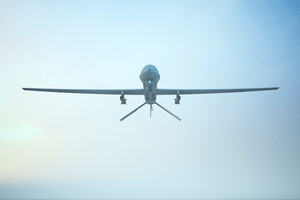
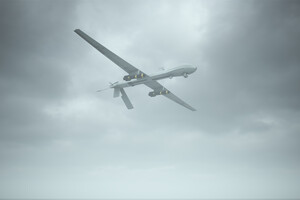
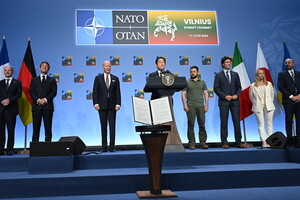

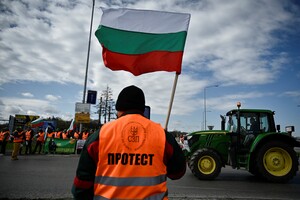

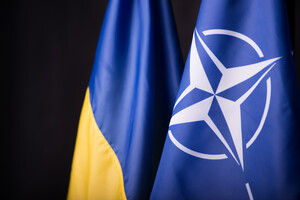
 Login with Google
Login with Google